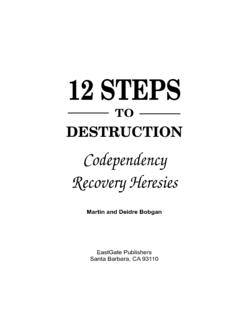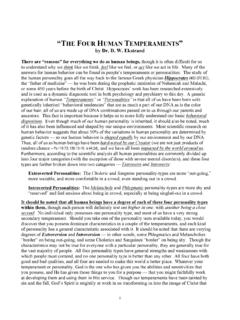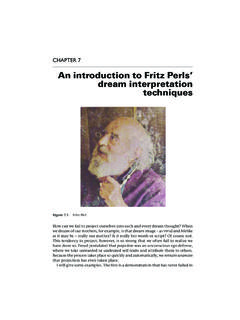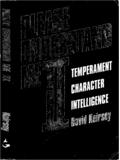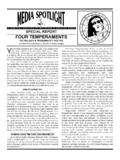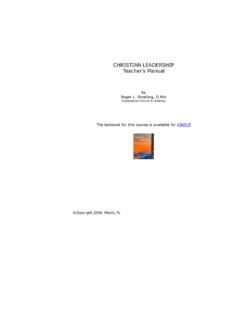Transcription of Four Temperaments, Astrology and Personality Testing ...
1 Chapter One from four Temperaments, Astrology and Personality TestingChristiansand theFour TemperamentsNumerous Christians believe they can gain great insight into themselves and others by studying thepersonality characteristics of the four temperaments. Authors claim to tell you why you act the way you do and how to: Analyze your strengths and weaknesses. Discover how God can use your gifts. Improve your relationships with others. Get ahead in your career. 1 Testimonies abound. After years of marriage, a woman reads a book about the four temperaments and believesshe understands her husband for the first time. Mothers are convinced that once they discover whether theirchildren are little Sanguines, Cholerics, Melancholies, or Phlegmatics, then they will be able to understand whytheir children behave the way they temperament enthusiasts believe that knowing the temperaments gives them greater ability in relatingto their friends.
2 They claim to know which type will be late for lunch, which will be prompt, and which will beearly. And once they begin to use the four temperaments system, they are convinced it is accurate and Are the four Temperaments?The four temperaments theory is an ancient system devised for understanding human nature and therebyimproving the human condition. The theory divides people according to various Personality characteristics thatappear to make up their basic temperament . Some people attempt to distinguish between a person stemperament and his Personality by saying that temperament traits are inborn while Personality traits are theresult of nature and nurture. However, the distinction is not always possible or four temperament categories are Sanguine, Choleric, Melancholy, and Phlegmatic. Each category ortype is defined by a list of descriptive terms. Then people are assigned to one or more types by matching theperson with the following chart presents each of the four temperaments with a brief list of traits generally associated witheach to angerAggressiveInconsiderateMelancholyMe lancholySensitiveAnalyticalPerfectionist icUnsociableMoodyRigidPhlegmaticCalmDepe ndableEfficientEasy-goingPassiveStubborn Lazy The above list is both brief and incomplete.
3 As the theory has been passed down through the centuries, thedescriptions of each type have been modified and expanded. Descriptive terms for each type are not alwaysconsistent among those who use the four temperaments system. For some, a particular characteristic, such asleadership, would be used to describe the Choleric; for others it would describe the Sanguine. Thus, the listsare not hard and fast. They vary according to the person who is presenting or Specific? temperament categories are very broad and general. They are not specific. Yet, when various writersdescribe the temperaments, the descriptions can sound very specific and exact. Notice, for example, howspecific the following description of the Sanguine Personality sounds. It was written by the 18th centuryphilosopher Immanuel .. the sanguine person is carefree and full of hope; attributes great importance to whatever he may bedealing with at the moment, but may have forgotten all about it the next.
4 He means to keep his promisesbut fails to do so because he never considered deeply enough beforehand whether he would be able tokeep them. He is good-natured enough to help others but is a bad debtor and constantly asks for time topay. He is very sociable, given to pranks, contented, does not take anything very seriously, and has many,many friends. He is not vicious but difficult to convert from his sins; he may repent but this contrition(which never becomes a feeling of guilt) is soon forgotten. He is easily fatigued and bored by work but isconstantly engaged in mere games these carry with them constant change, and persistence is not is always involved in describing a typical Sanguine, Choleric, Melancholy, or Phlegmatic. Suchtemperament descriptions generally resemble characters in movies or books more than any kind of scientificallyestablished categories by which to analyze Are the four Temperaments Popular?The four temperaments, which had largely gone out of vogue since medieval times, have become popularamong evangelical Christians in the same way that Astrology has risen in popularity among because of life s ever-increasing complexities and numerous complex psychological systems, peopleare looking for simple ways to understand themselves and that s why the four temperaments have made a comeback.
5 They are easy to understand and use. Theyoffer simple explanations for the complexity of individual differences and propose simple solutions to complexproblems of living. Furthermore, many Christians have confidence in the four temperaments theory because theybelieve it is reliable, helpful, and compatible with the the beginning, typologies have been designed to help people both understand themselves and improvetheir condition. Each of the four temperaments has positive and negative characteristics. Positive traits are called strengths and negative ones are called weaknesses. Thus, the idea is to help people understand themselvesand others through identifying positive and negative once they understand themselves according to their strengths and weaknesses, they can work toenhance their strengths and overcome their weaknesses. Furthermore, once they have put each other into boxesthey won t be as surprised when negative traits surface in behavior.
6 There will be an illusion of being able topredict and Reliable?The four temperaments theory also gives an illusion of truth. One can apply all descriptive traits to allhumans to a greater or lesser degree. Therefore, when temperament characteristics are placed in categories,people can easily see themselves because of the universal nature of traits, such as friendly, confident, sensitive,dependable, and so , when people are told that they may be a combination of the four temperaments, they can easily fitthemselves into a classification. That does not mean the four temperaments are in themselves accurate or only means they consist of universal traits and that people can identify with them to some four temperaments are broad, arbitrarily defined categories of universally applicable descriptive wordsthat apply to large numbers of people. Yet, when people apply categories to themselves and others, they thinkthey have specific information.
7 Actually they may have some broad approximation which might be partly true ina very general sense. This is referred to in research literature as the Barnum Effect, named after the circusshowman P. T. their book Astrology : Do the Heavens Rule Our Destiny? John Ankerberg and John Weldon declarethat the chart of any person is potentially relevant to every other person, 3 Just as in Astrology , a particular fourtemperaments category is potentially relevant to everyone. As we will show later, there are more variationpossibilities among the twelve zodiac signs than with the four temperaments. Thus, their statement would beeven more applicable to the four spite of the lack of scientific evidence or biblical scholarship, books about identifying and transformingtemperaments often sound authoritative. They include both plausible information and wild speculation presentedas proven fact. Once a person is hooked into such a system of understanding self and others, he will seeeverything from that perspective.
8 Also, once a person is convinced that he fits a particular category orcombination of categories, he will look for and notice confirming evidence. He will look for validation and find iteven when it is not there. He will even tend to act according to his new understanding. In other words he willmake himself fit that Glick, in his article Stars In Our Eyes, says the tendency to look for and notice confirming evidenceexplains why, despite the lack of any evidence of their validity .. millions of people turn daily to horoscopesfor clues to leading their lives. 4 The same is true of the four temperaments. They appear to be true becausepeople want them to be true. They appear to work because people want them to Understanding?Another reason for their popularity is that knowledge of the four temperaments may also give the illusion ofexceptional insight into oneself and others. By using lists of descriptive words and phrases, people assignthemselves and others to Sanguine, Choleric, Melancholy, and Phlegmatic categories.
9 The assumption is thatonce they have placed someone in a category, they can understand and know that person better. However, thewhole process of putting a person into a category leads to no substantial additional understanding of process of categorizing self and others relies on previous subjective knowledge. All that happens is thatthe subjective knowledge one already has about a person is organized according to an artificial arrangement andgiven a name. For instance, if you discover that your child is Phlegmatic, you were already familiar withenough of his characteristics to line them up with the adjectives listed under Phlegmatic. All you have done is to match descriptive characteristics and come up with a name: Phlegmatic. But, sincethe list could not have included everything about your child, the word Phlegmatic may be inaccurate andmisleading. You might actually understand your child less for having matched the available adjectives, becauseyou might now focus on those characteristics and ignore others that might be far more the temperament traits and categories can actually hinder knowing and understanding ourselvesand others.
10 For instance, one characteristic may be noticed in a person in a particular situation. Then, as quickas a flash, that person is popped into a category and assigned the other characteristics associated with thattemperament, whether or not the other characteristics specifically apply. As soon as a person is placed into atemperament category, there is a tendency to view that person accordingly. Then the temperament user maysimply react to the label, rather than respond to him as a real, living temperament or Personality typologies undermines the complex variety of individual differencesexpressed within the vast possibility of social interactions and circumstances. People are not exactly the same indifferent circumstances. One who may appear reserved and quiet in some circumstances may be highlyexpressive and outgoing in Excuse for Behavior?Another reason for the four temperaments popularity may be their fleshly appeal.

